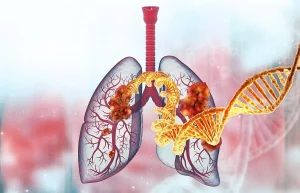
While pregnancy is, without a doubt, a wonderful and exciting time in any woman’s life, it also comes with its limitations and – how should I put this? – downsides. From nausea, weight gain, water retention, and achy joints to a whole bevy of less-than- desirable changes, growing a human baby is not easy work. This is especially true – and perhaps the reason I’ve stuck to dogs up to this point – when it comes to the restrictions; namely, food and drink. Many expecting mothers are fully aware of the potential harmful effects of sushi, opting for cooked fish as a way to get their omega-3 fatty acids. Unfortunately, now fish of all types comes with a few conditions during pregnancy.
New research from a long-term, wide-spanning study is now showing a link between eating large amounts of fish during pregnancy and childhood obesity. Researchers from 11 countries delved into this connection, which concludes that consuming fish more than three times a week during pregnancy can drastically increase the risk of obesity in children.
The study also discovered a link between eating fish more than three times a week and rapid growth in children during their first two years of life.
These findings coincide with recommendations from the FDA and EPA that have stated pregnant women can eat fish, but should limit it to 8-12 ounces per week. There’s no need to avoid the food altogether, but moderation is key. After all, fish does contain key nutrients vital for developing fetuses. The exact specifications of the study concluded that eating fish more than once a week but less than three times had no link to overweight or obese children.
The study involved monitoring the children in two-year intervals from birth until age 6. Fish consumption that exceeded three times a week resulted in children with higher BMI (Body Mass Index) values at ages 2, 4, and 6. It is also linked to a higher risk of rapid growth between birth and the child’s second birthday. The effects of excessive fish intake during pregnancy were more significant in girls than in boys, according to the data.
It is thought that fish exposes us to a high level of organic pollutants, due to the condition of fish farms and our oceans. These pollutants disrupt the endocrine systems of developing babies, leading to these findings.
The bottom line: don’t put fish on the no-fly list. After all, it is a vital dietary source of essential nutrients that will help your baby grown and develop – while also keeping you fit and full during your pregnancy. Just be conscientious of how much fish you’re eating. To recap, 8-12 ounces per week is right on the money. More than once but less than three times per week – which, by my math, puts you at twice a week.

















